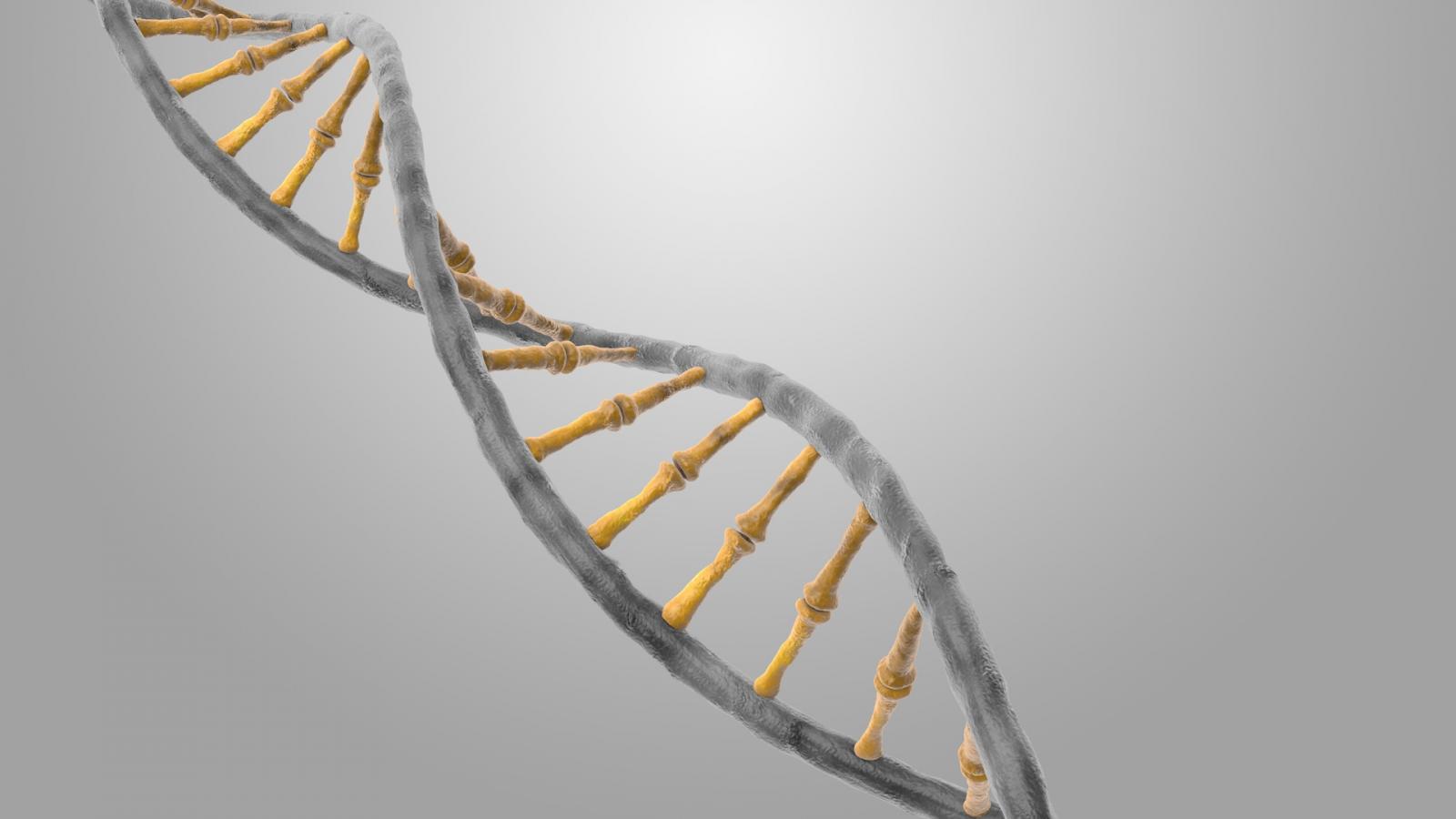Cancer and genes

How can genes cause cancer?
Genes contain your genetic material (DNA). They contain the information a cell needs to work properly. Genes control the way cells grow, repair and die.
Cancer is caused by changes in certain genes. For example, genes that control how cells grow and multiply and genes that help repair DNA.
If the gene no longer gives the correct information to the cell, it can can cause abnormal cells that start to grow out of control. These cells are cancer cells.
There are 2 main ways that gene changes that can cause cancer happen:
- Gene changes that happen during our lifetime (acquired genetic alterations)
- Gene changes that are passed on in families (inherited or hereditary genetic alterations)
Gene changes that happen during our lifetime (acquired genetic alterations)
Most cancers are caused by genetic changes that happen (are acquired) during a person’s lifetime. These genetic changes cannot be passed onto family. Many things can cause acquired genetic changes, including:
- Exposure to things in our environment like tobacco smoke, certain viruses, such as HPV, and UV rays in sunlight
- Our diet
- Our hormones
What increases the chance of these gene changes?
Things that increase the chance of acquired genetic changes are called carcinogens. For example, chemicals in cigarettes and alcohol are carcinogens.
It can take years for a gene to change and cause cancer. This is why cancer is more common in older people.
Read more information on the things that increase your cancer risk or call our Support Line on Freephone 1800 200 700.
Gene changes that are passed on in families (inherited or hereditary genetic alterations)
We have 2 copies of most genes. We inherit one copy from our mother and one copy from our father. The child of a parent with a genetic change has a 1 in 2 (50%) chance of inheriting the same genetic change from their parent.
When a person inherits a genetic change that increases their cancer risk, it doesn’t mean they will definitely get cancer.
Some genetic changes increase the risk of cancer more than others, and some increase the risk of more than one cancer type.
An inherited genetic change also increases the chance of developing cancer at a younger age.
Around 5-10% of cancers are clearly linked to an inherited genetic change.
Does cancer run in my family?
Cancer in your family may be caused by an inherited genetic change if:
- You have a close (‘first degree’) relative, such as a parent, brother, sister or child, who has been diagnosed with 2 separate cancers. For example, bowel cancer and endometrial (womb) cancer
- 2 or more close relatives on the same side of your family have had the same cancer
- You or one of your relatives have a cancer most commonly seen in the opposite sex (for example, male breast cancer)
- You have Ashkenazi Jewish ancestry
- You have had cancer at a younger age than commonly seen (for example, bowel cancer under the age of 50)
This list is a guide only. If any of the above points apply to you, it is possible, but not certain, that you have an inherited genetic cause for cancer in your family.


Worried about inherited cancer?
Visit your GP if you are worried that cancer might run in your family.
If your GP thinks that there may be an inherited cause for cancer, based on your family history, they will refer you to a genetics clinic (or a specialist breast clinic in the case of breast cancer). The clinic will do a detailed review of your family history of cancer to find your level of risk and whether you and your close blood relatives need genetic testing.
It is also possible to pay for private genetic testing.
If your family doctor refers you to the clinic, you may have to wait some time - perhaps a number of months - before the cancer genetics team reviews your case.
The genetics clinic
The genetics clinic aims to:
- Identify people who may have inherited a genetic change that increases their cancer risk
- Provide counselling, information and support for people undergoing testing
- Provide counselling, information and advice on managing increased risk when a genetic change is identified
About genetic testing
Genetic testing is when the laboratory looks for an inherited cause for cancer in your family. They do this using a sample of your blood or saliva (spit).
Types of genetic testing
- Diagnostic testing looks for a genetic change in families with a strong history of cancer. It is usually done on a family member who has had cancer. If a genetic change is found, other members of the family can then choose to have a predictive genetic test.
- Predictive genetic testing is carried out in a family where there is a known genetic change. The genetics team therefore knows which specific gene change to look for and where to find it.
If a genetic change is found
If testing finds a gene change that increases your risk of cancer, the clinic will tell you about the gene change means for your cancer risk. How much your risk is increased and what you should do about it depends on the particular gene change. Your genetic counsellor can give you more information about this.
Depending on how high the risk is, screening or risk-reducing surgery may be recommended for you. Risk-reducing surgery means having surgery to remove the part of your body that could be affected by the cancer that is linked to the gene change. For example, if you have a change that puts you at high risk of breast cancer, risk-reducing surgery would involve surgery to remove your breasts (mastectomy).
The clinic may also offer genetic testing to other members of your family, to see if they might have an increased cancer risk (predictive testing).
If you are referred to a genetics clinic

See our Cancer and genes factsheet for more information on genetic counselling, advantages and disadvantages of testing, what your results might mean for you and coping emotionally.
Inherited cancers
Hereditary breast cancer and ovarian cancer
The genes most commonly associated with a high risk of developing breast or ovarian cancer are called BRCA1 and BRCA2. There are other genes that can increase your risk. BRCA gene changes are also linked to other cancers, such as male breast cancer or prostate cancer. For more information or if you are worried about breast or ovarian cancer, call our Support Line on 1800 200 700 or visit a Daffodil Centre.
Read more about breast cancer or ovarian cancer.
Hereditary colorectal (bowel) cancer
Around 1 in 20 bowel cancers are related to inherited genetic changes.
There are many known cancer genes related to inherited bowel cancer. The 2 main main conditions linked to inherited bowel cancer are Lynch syndrome / hereditary non-polyposis colorectal cancer (HNPCC) and familial adenomatous polyposis (FAP).
- Lynch syndrome / HNPCC is the most common gene change that causes bowel cancer. It causes non-cancerous growths called polyps that can lead to cancer if left untreated. Patients with Lynch syndrome tend to get bowel cancer at a younger age. It also increases the risk of other cancers.
- Familial adenomatous polyposis (FAP) is a rare genetic condition where hundreds or thousands of growths called polyps develop in the large bowel (colon). These polyps (adenomas) start to grow during teenage years. If left untreated, they can develop into cancer.
Read more about bowel cancer.

For more information
Phone
1800 200 700



